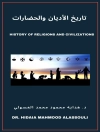The Kreutzer Sonata Leo Tolstoy – When Marshal of the Nobility Pozdnyshev suspects his wife of having an affair with her music partner, his jealousy consumes him and drives him to murder. Controversial upon publication in 1890, The Kreutzer Sonata illuminates Tolstoys then-feverish Christian ideals, his conflicts with lust and the hypocrisies of nineteenth-century marriage, and his thinking on the role of art and music in society.In her Introduction, Doris Lessing shows how relevant The Kreutzer Sonata is to our understanding of Tolstoy the artist, as well as to feminism and literature. This Modern Library Paperback Classic also contains Tolstoys Sequel to the Kruetzer Sonata.Pozdnyshev and his wife have a turbulent relationship. When her beauty blossoms after the birth of their children, men begin to flock around her, and he becomes increasingly jealous. Convinced his wife is betraying him with a young musician, his overpowering suspicion drives him to ever more dangerous lengths.United by the theme of love, the writings in the Great Loves series span over two thousand years and vastly different worlds. Readers will be introduced to loves endlessly fascinating possibilities and extremities: romantic love, platonic love, erotic love, gay love, virginal love, adulterous love, parental love, filial love, nostalgic love, unrequited love, illicit love, not to mention lost love, twisted and obsessional love.
Sobre el autor
Lev Nikolayevich Tolstoy (Russian: ; most appropriately used Liev Tolstoy; commonly Leo Tolstoy in Anglophone countries) was a Russian writer who primarily wrote novels and short stories. Later in life, he also wrote plays and essays. His two most famous works, the novels War and Peace and Anna Karenina, are acknowledged as two of the greatest novels of all time and a pinnacle of realist fiction. Many consider Tolstoy to have been one of the world’s greatest novelists. Tolstoy is equally known for his complicated and paradoxical persona and for his extreme moralistic and ascetic views, which he adopted after a moral crisis and spiritual awakening in the 1870s, after which he also became noted as a moral thinker and social reformer.His literal interpretation of the ethical teachings of Jesus, centering on the Sermon on the Mount, caused him in later life to become a fervent Christian anarchist and anarcho-pacifist. His ideas on nonviolent resistance, expressed in such works as The Kingdom of God Is Within You, were to have a profound impact on such pivotal twentieth-century figures as Mohandas Gandhi and Martin Luther King, Jr.




